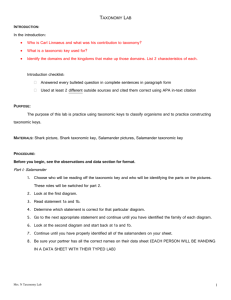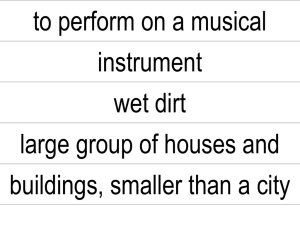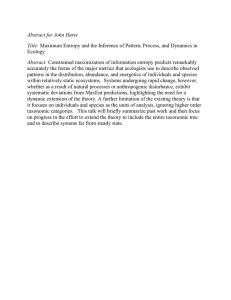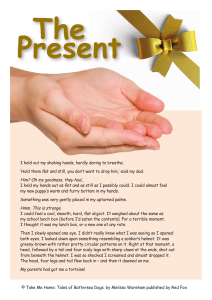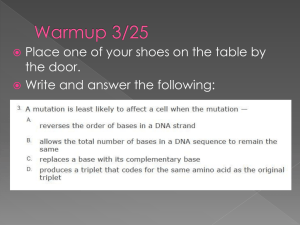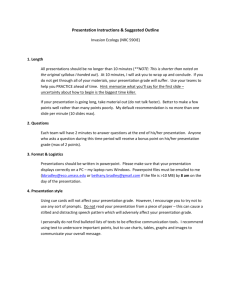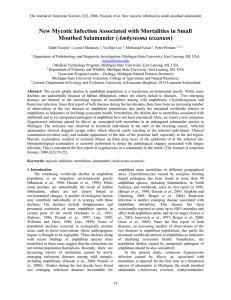How to Use a Taxonomic Key
advertisement
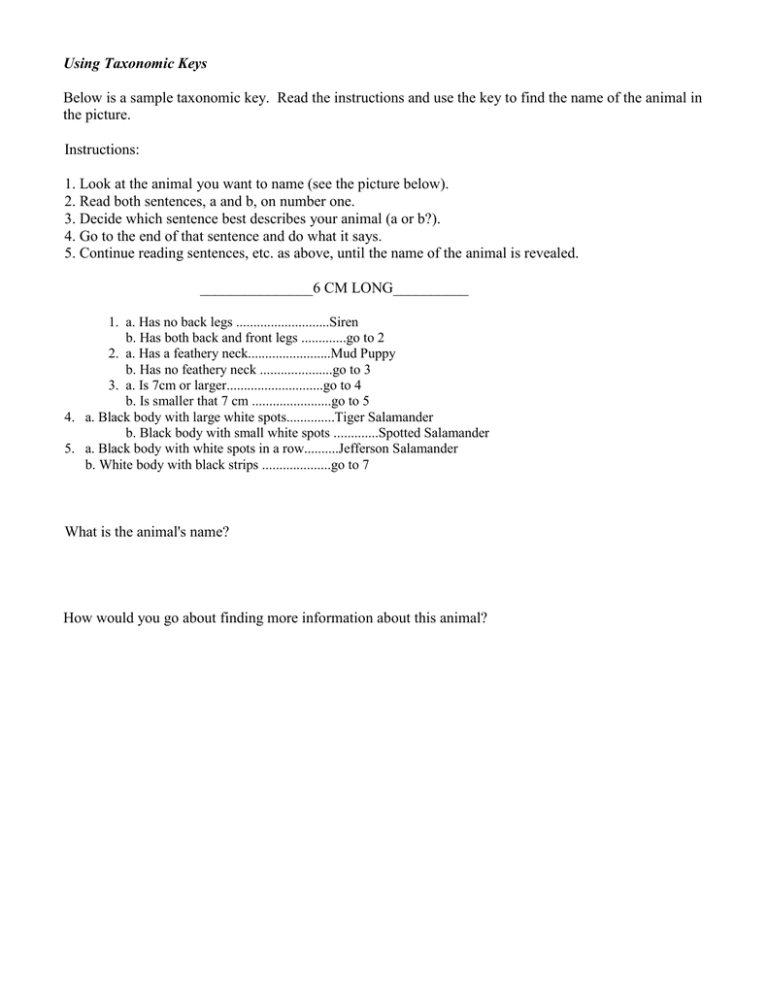
Using Taxonomic Keys Below is a sample taxonomic key. Read the instructions and use the key to find the name of the animal in the picture. Instructions: 1. Look at the animal you want to name (see the picture below). 2. Read both sentences, a and b, on number one. 3. Decide which sentence best describes your animal (a or b?). 4. Go to the end of that sentence and do what it says. 5. Continue reading sentences, etc. as above, until the name of the animal is revealed. _______________6 CM LONG__________ 1. a. Has no back legs ...........................Siren b. Has both back and front legs .............go to 2 2. a. Has a feathery neck........................Mud Puppy b. Has no feathery neck .....................go to 3 3. a. Is 7cm or larger............................go to 4 b. Is smaller that 7 cm .......................go to 5 4. a. Black body with large white spots..............Tiger Salamander b. Black body with small white spots .............Spotted Salamander 5. a. Black body with white spots in a row..........Jefferson Salamander b. White body with black strips ....................go to 7 What is the animal's name? How would you go about finding more information about this animal? Now try these! Find the class in which each vertebrate animal belongs, using the taxonomic key. Be sure to write every number and letter that you used to find the answer. Remember, start with 1 for every animal. 1. _________________________ 4. __________________________ 2. _________________________ 5. __________________________ 3. _________________________ 6. __________________________ Taxonomic Key: 1. a. has a backbone.........................................go to 2 b. does not have a backbone............................go to 19 2. a. Lives all its life in water...............................go to 3 b. does not live all its life in water.....................go to 5 3. a. has gills, fins, and scales.............................go to 4 b. has a round mouth and no jaws......................jawless fish 4. a. 1 gill flap and a hard skeleton bonyfish b. 2 or more gill slits, soft skeleton cartilage fish 5. a. is cold-blooded go to 6 b. is warm-bloodedgo to 9 6. a. lays its eggs in water go to 7 b. has land eggs or live birth go to 8 7. a. smooth skin, large back legs...........................Amphibian, frog b. smooth skin, short legs, long tail......................Amphibian,salamander 8. a. dry, scaly, skin; no legs ................................Reptile, snake b. dry, scaly, skin; clawed toes...........................Reptile, lizard 9. a. feathers, beak, hollow bones bird b. hair/fur, mammary glands, live birth......................mammals
